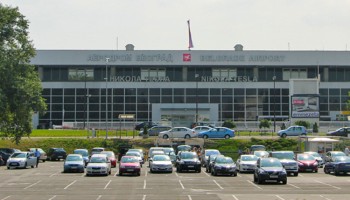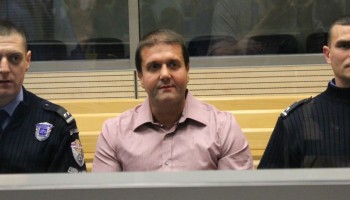Reporters for KRIK, working with the Czech Center for Investigative Reporting, discovered that dozens of companies established in the Czech capitol are directly linked to powerful Balkan organized crime groups that make their money from drug trafficking, murder-for-hire and cigarette smuggling.
Some of these companies are engaged in the gambling business and control chains of casinos. Others look like offshore paper companies without offices, financial reports or any information on record about the businesses.
Reporters working on a joint investigation with the Organized Crime and Corruption Reporting Project (OCCRP) interviewed several of the people who established these companies for the crime groups. They said the companies were used mainly to obtain European Union (EU) residency for the Balkan figures.
Czech law allows foreign nationals who own businesses to obtain Czech (and thus EU) residency. Balkan crime gangs used emigrants from their home countries to set up what appear to be fictitious business structures in the Czech Republic.
At least six important Balkan crime figures and their groups operate in the Czech Republic, especially in Prague. These include the Darko Šarić group, Andrija Drašković, Milan Narančić, the Qasim Osmani family, Borislav Plavšić’s group and the Ismet Osmani clan.
Most are high-profile criminal names and even celebrities in their home countries. Some are facing trial for cocaine smuggling; others have been previously sentenced for murder. Their business activities range from cocaine to heroin trafficking, cigarette smuggling, and gambling.
Police say the Czech Republic has been a favorite logistics hub for drug shipments since the early 1990s for various Balkan groups, and that this continues today.
Each week, at least one multi-million dollar drug shipment goes through the Czech Republic into Germany, says Hynek Vlas, a former policemen and head of the Czech unit for combating organized crime (ÚOOZ).
Besides the narcotics business, the groups use Czech territory for setting up companies.
“These groups use (the) Czech Republic as a logistical base, because their members can easily obtain residence through establishing a company,” says the 2012 Annual Report of the Czech Police Anti-Narcotics Unit.
“The company can be dormant for many years without the threat of any penalty, so it often serves as a smokescreen for actual activities or as an inconspicuous address for delivery. Members of these groups also benefit from language similarity and prefer the position of the Czech Republic in central Europe, with quality air and motorway connections to the Balkans as well as the European Union.”
Šarić group
The most famous name on the list is Darko Šarić, a celebrity in the Balkan organized crime world.
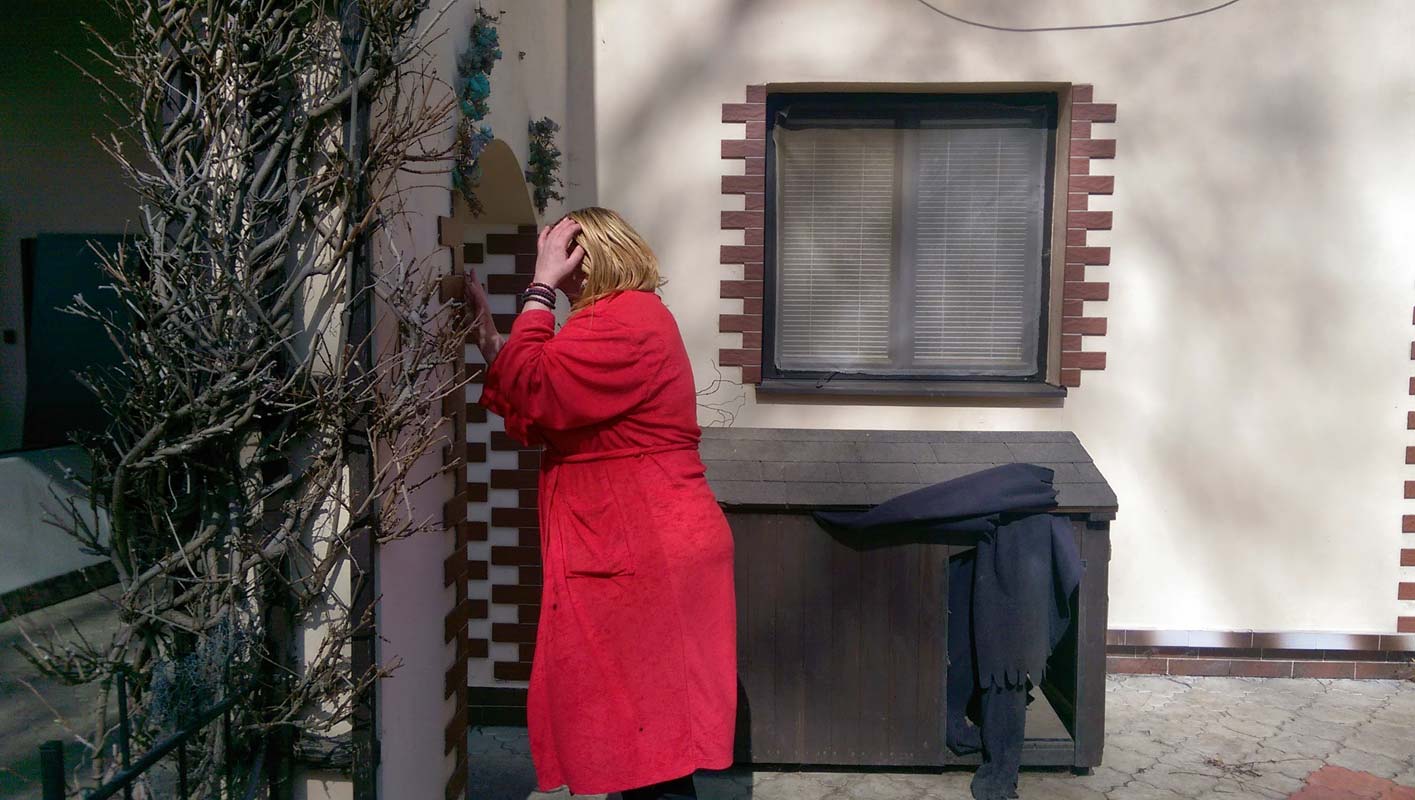 Milka Stepankova running away from being photographed.Although Šarić himself was recently sentenced to 20 years in prison for trafficking cocaine from South America – he was charged with trafficking 5.7 tons and laundering € 22 million (US$ 24 million) – parts of his group are believed to be largely intact and operating.
Milka Stepankova running away from being photographed.Although Šarić himself was recently sentenced to 20 years in prison for trafficking cocaine from South America – he was charged with trafficking 5.7 tons and laundering € 22 million (US$ 24 million) – parts of his group are believed to be largely intact and operating.
Šarić was the group’s leader but, police say, he rarely if ever touches the merchandise himself. He has good relations with powerful politicians both in Serbia, where he is living, and Montenegro, where he was born in the town of Pljevlja. Top managers of Šarić’s group were arrested in Operation Balkan Warrior by Serbian intelligence and the American Drug Enforcement Administration (DEA). The operation started in 2009, but Šarić surrendered only in 2014.
Šarić’s trail in the Czech Republic is easy to follow but not so easy to document. In January 1998, he and eight other people established a company called Solimba Z. M. in Prague at Taborska 22/603. That address does not exist.
A formation agent named Milka Štěpánková registered the company. She told reporters she came to Prague in 1993 to escape the Yugoslav wars.
She said she formed companies for organized crime members, in part because they were from her Balkan community, and partly because she was the victim of an abusive relationship.
“I came to Prague with two small kids. And I was pregnant,” she said. “I came together with my former husband Zoran. We relied on the support of our community. This is why I never asked too many questions.”
She said she signed documents for her husband because she was afraid of him. “He was beating me,” she said.
Štěpánková said she was not aware that Šarić was a drug lord.
“I know him from Pljevlja, our hometown. He always gave me the impression of being a nice guy, just a little bit of a yokel. I would never assume he would have such a mind and good-enough connections to do drug business,” Štěpánková said.
Štěpánková said she met him just once, in 1993, when he came to sign the documents needed to establish the company.
“I have not seen him since. He founded the company only to get his papers done – he was trying to get permanent residency everywhere. From what I know, he was aiming more West.”
Šarić´s lawyer, Radovan Strbac, is charged in Serbia with helping Šarić launder money and with gathering sensitive information from police to help the drug-trafficking organization. He told reporters the same thing.
"The point was that we, from this area, get as close to Europe as possible, to get residency there and (obtain) certain privileges that European companies have,” Strbac told reporters from KRIK.
Solimba Z.M. never filed any financial or annual report, Štěpánková confirmed.
“Nothing ever happened with the company. There was no money and no business activities. I would know. They would need me to sign the papers. And it never happened,” she said.
In the Family
Another Balkan family that helped organized crime figures establish companies in Prague was Ratko Škorić and his son, Miša. The Škorićs provided addresses for a number of companies formed by Šarić associates.
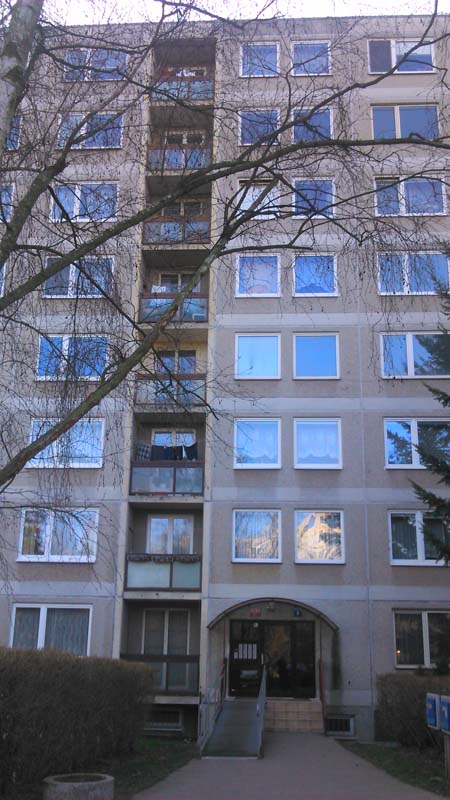 Former seat of TIM Trade.The Škorić family register their companies in Modřany, an area on the outskirts of Prague dominated by tall blocks of flats typical of socialistic-era architecture. The flats were designed to be accessible living for young families, but ended up as clusters of anonymous hulks. It was here that Šarić´s close ally and alleged right-hand man, Goran Soković, established a company called VUK-SOK Company in one of three apartments owned by the Škorić family. Soković is currently a fugitive.
Former seat of TIM Trade.The Škorić family register their companies in Modřany, an area on the outskirts of Prague dominated by tall blocks of flats typical of socialistic-era architecture. The flats were designed to be accessible living for young families, but ended up as clusters of anonymous hulks. It was here that Šarić´s close ally and alleged right-hand man, Goran Soković, established a company called VUK-SOK Company in one of three apartments owned by the Škorić family. Soković is currently a fugitive.
Šarić‘s cousin Arso Šarić, who was sentenced to five years in prison for smuggling 20 kilograms of heroin in 2007, also received help from the Škorić family.
Only a month before his arrest in 2010, he opened the Czech company TIM Trade Praha. After his arrest, he transferred ownership to four citizens of India at the Czech embassy in Belgrade. Arso Šarić was sentenced to five years in prison for smuggling drugs.
apartment of Miša Škorič. Škorič‘s mailbox lists numerous companies located there and gives his mobile phone number to reach them.
When reporters of CCIZ asked Ratko Škorić about Šarić in a phone interview, he denied knowing Šarić, excused himself due to poor health and hung up. His son, Miša Škorič, answered the doorbell and when asked about TIM Trade Praha, said he had never heard of the company, adding: “What´s wrong with it?”
Police say another fugitive member of the Šarić gang, Bośko Nedić, once controlled the cocaine market in Milan, Italy. They say he also shared a Prague-based company, Man-Co, with Vitomir Bajić, another member of Šarić´s group.
Police say Nedić fled to South America to avoid arrest in Italy. Bajic was arrested in Montenegro and extradited to Italy, where he committed suicide in 2011.
Drašković
Andrija Drašković is another celebrity figure in the Balkan crime syndicates with ties to Prague. He was indicted in Italy for his involvement in a Montenegro-based cigarette smuggling scheme allegedly involving Montenegrin Prime Minister Milo Djukanovic, and a number of well-known Balkan and Italian crime groups including the Sacra Corona Unita and Camorra crime families. In 2001, he was convicted of murdering Zvonko Plecic, another criminal, in a Belgrade restaurant and was sentenced to nine and a half years in prison.
Drašković was released on appeal in 2004, only to be nearly killed in a hail of automatic gunfire when a rival crime gang allegedly attacked his armored Jeep, killing one bodyguard.
Drašković was convicted again in the Plecic shooting at a second trial in 2010; he was finally released in October of 2013.
Drašković was jailed again in Croatia in June 2015, under a warrant from Belgium. Belgian law enforcement was investigating him for his role in the 1990 murder of an Albanian political activist. After posting € 100,000 bail (US$ 110,000), Croatian authorities allowed him to await extradition in a luxury Croatian hotel. Drašković promptly fled from Croatia to Serbia. His lawyer told KRIK that he cannot be extradited from Serbia to Belgium because the countries don’t have an extradition agreement.
In Prague, Drašković registered a company called Mizzora. According to Ivana Šimková, a woman who has registered other companies for the Šarić gang, the crime figure has shown little interest in the company.
“He came just once to sign the papers, I haven't seen him since. All the establishing process was done in a rush, which is why my daughter Martina was enlisted as a signatory,” Šimková said. Her daughter, Martina Šimková, a hairdresser by trade, shows up on company formation documents from 2005.
“The companies are dormant. They were established only to gain permanent residency in the Czech Republic. To get the permanent residency by the ordinary way takes more than five years, which was a time frame that not many of my clients would consider,” says Šimková.
Mizzora is registered at the address of its accountant, Marie Vejanoska, on Molitorovska Street in Prague. Vejanoska also does accounting for Šarić’s associate Boško Nedić and a company for Rijad Izić, a business partner of Sašo Mijalkov, the head of the Macedonian secret service.
Vejanoska would only say, “I have nothing to do with the companies, they are just located here and I do their accounting work.”
Lemon’s Gang
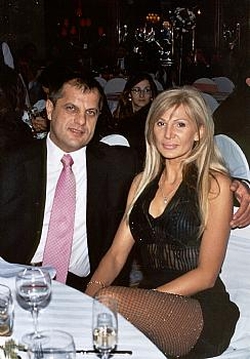 Milan i Branka Narancic - photo from their private album.Before entering the gambling business, Milan “Lemon” Narančić was allegedly a member of the Belgrade-based Surčin clan, Serbian police said in a special investigative report in 2002.
Milan i Branka Narancic - photo from their private album.Before entering the gambling business, Milan “Lemon” Narančić was allegedly a member of the Belgrade-based Surčin clan, Serbian police said in a special investigative report in 2002.
The violent group controlled heroin and cocaine trafficking operations in the region, the report said, and was active in money laundering and other crimes. The Surčin clan was one of the biggest organized crime groups in Serbia until 2003 when it was broken up by police raids.
The clan was involved in murders, drug trafficking, car theft and cigarette smuggling. One of the offshoots of the Surčin clan was the notorious Zemun clan whose members were involved in the assassination of Serbian Prime Minister Zoran Djindjić.
Narančić's most recent arrest was in 2003 as part of a police sweep aimed at rounding up alleged organized crime figures. He was released four days later and has not had any legal troubles since. In 2003, Narančić established a company called LD Games in the Czech city of Cheb; it has since closed.
No one has ever heard of LD Games. There is no sign of the company at its official address and people working at that address in Cheb do not recall a company called LD Games. Still, its last financial report from 2005 showed a US$ 700,000 annual turnover.
Nevertheless, in 2012 the company was struck off the business register for not being present at its domicile and not being able to pay its debts.
Borislav Plavsic group
Zoran “Suri” Petkovič, an associate of drug dealer Borislav Plavsic, was arrested in late 2010 for attempting to smuggle 120 kilograms of heroin from Istanbul to the Czech Republic. A Slovenian Mercedes truck filled with 383 packets of heroin hidden in boxes of lemons was stopped by authorities in Belgrade. The plan had been to cut the mostly pure heroin in the Czech Republic for shipment to Western Europe.
Petković established his Prague company in 2003 and called it Surikompani, matching his nickname. According to financial reports, the company conducted no business activities and was struck off the register in 2010. According to a police investigation, the company was supposed to be a front for narcotics trafficking.
Jan Draslar, the liquidator of the company, said: “No one was answering my legal requests and I did not find the company at its alleged address. I even sent a legal request to Croatia, to help me monitor the company assets. Specifically I was asking about one car in evidence of the company, but no one ever replied. So I have closed this case and this company.”
Albanian Mob
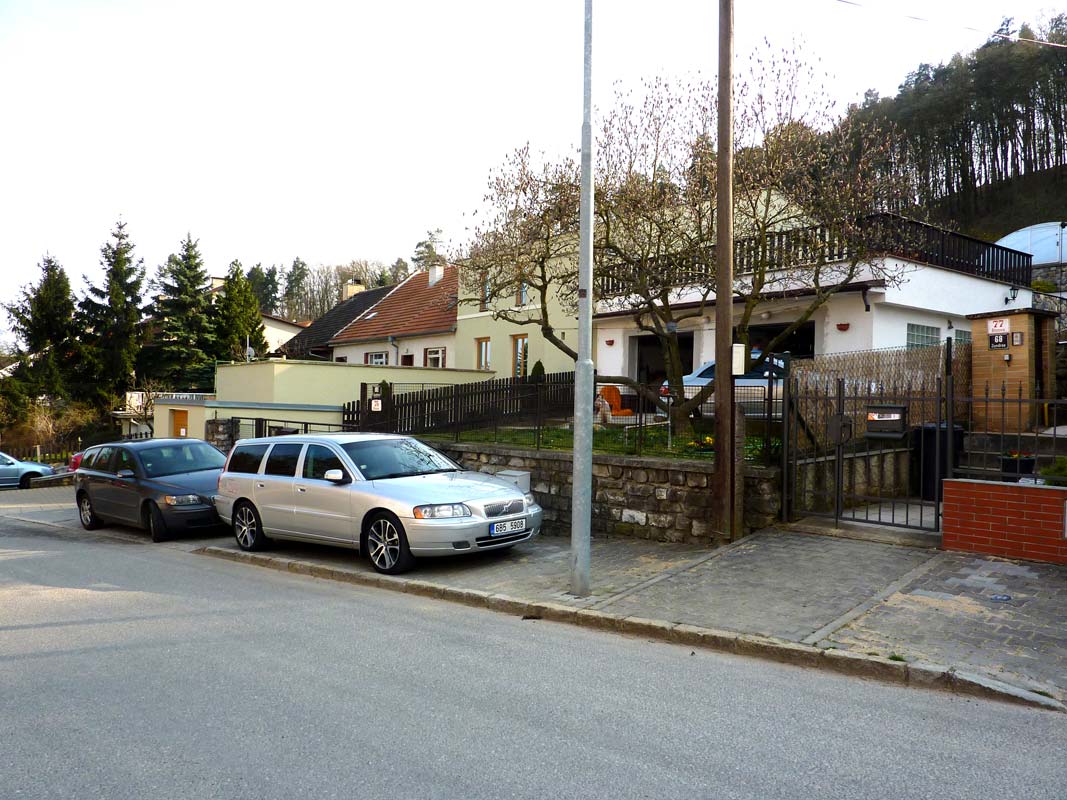 House at Brezova.Kosovar-born Ismet “Curri” Osmani from Kosovska Mitrovica established his company Dafina in Brno, the second largest city in the Czech Republic, located about 100 kilometers north of Vienna. For a long period of time, the company was dormant, but last year, in August 2014, Osmani sold a majority share to his roommate, Nikola Kužnini.
House at Brezova.Kosovar-born Ismet “Curri” Osmani from Kosovska Mitrovica established his company Dafina in Brno, the second largest city in the Czech Republic, located about 100 kilometers north of Vienna. For a long period of time, the company was dormant, but last year, in August 2014, Osmani sold a majority share to his roommate, Nikola Kužnini.
Both Osmani and Kužnini are living in an upscale house on Březová Street in Brno. They share this address with Pjeter Nikollaj, who was vice-chairman of the board of directors of Paradise Casino Admiral – a network of 20 casinos that belong to the Austrian-based Novomatic group.
Felix
Qazim “Felix” Osmani (no known connection to Ismet Osmani) earned his nickname for his alleged legendary luck at gambling – allegedly he made his first million Deutsche Marks in casinos. The Kosovo-born Osmani cultivates a playboy image and is often seen dating Serbian pop singers.
He is also head of the Osmani family business, which is worth more than € 400,000,000 (US$ 440 million). Together with his brothers, he runs casinos, nightclubs and gambling houses across Europe. In Prague, he is co-owner of the Banco Casino, a network of 20 casinos located headquartered on Příkopy Street. Its annual turnover is about US$ 5 million.
According to a German BND investigation, Osmani and his brothers, who are his closest business partners, were investigated many times for violence, prostitution, fraud, money laundering, extortion and drug possession.
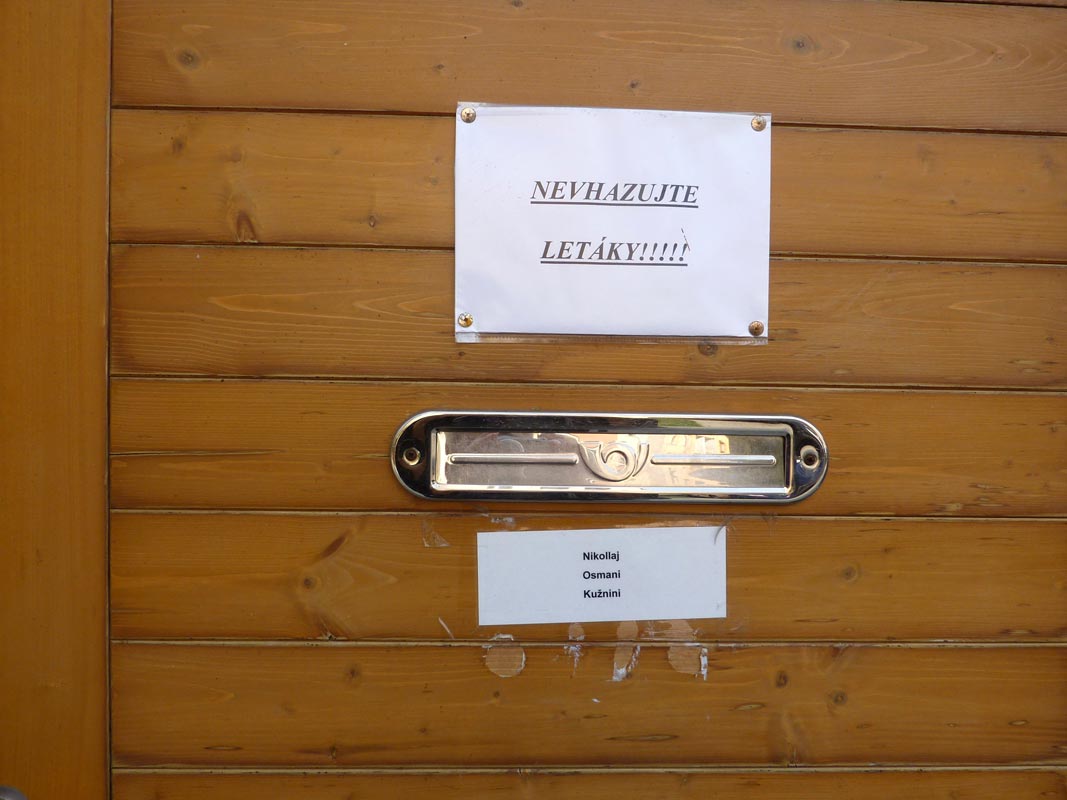 “The Osmani clan is an organized group active in the transfer of cocaine and is financing the purchase of weapons for the UĆK (a violent paramilitary group from Kosovo),” says a BND report obtained by OCCRP. Nevertheless, Felix - the lucky one - has never been found guilty. His brother Burim Osmani was found guilty of possessing forged documents and was sentenced to pay a fine of 20,000 Deutsche Marks (US$ 11,200), according to the BND report.
“The Osmani clan is an organized group active in the transfer of cocaine and is financing the purchase of weapons for the UĆK (a violent paramilitary group from Kosovo),” says a BND report obtained by OCCRP. Nevertheless, Felix - the lucky one - has never been found guilty. His brother Burim Osmani was found guilty of possessing forged documents and was sentenced to pay a fine of 20,000 Deutsche Marks (US$ 11,200), according to the BND report.
According to a Czech custom police officer, some of the Balkan criminals have gained the status of untouchable, so the chance they will be ever sentenced for anything related to drugs, is minimal.
“Those kind of drug lords are staying far from the real cocaine or heroin business. They are just sitting in some cozy place, remotely supervising the operations – through additional layers of managers and sub-managers. We can raid their network, but we always hit the lower levels of people working for them, those who are easily replaceable,” says a highly ranked police officer from Customs Administration who spoke on condition of anonymity.
“Many of those narco-traffickers chose Prague for its perfect location for logistical operations. They are staying or coming to Prague to make deals or to watch the trucks with their drug packages driving through Europe. If their official companies are dormant or not, it often does not matter.”




